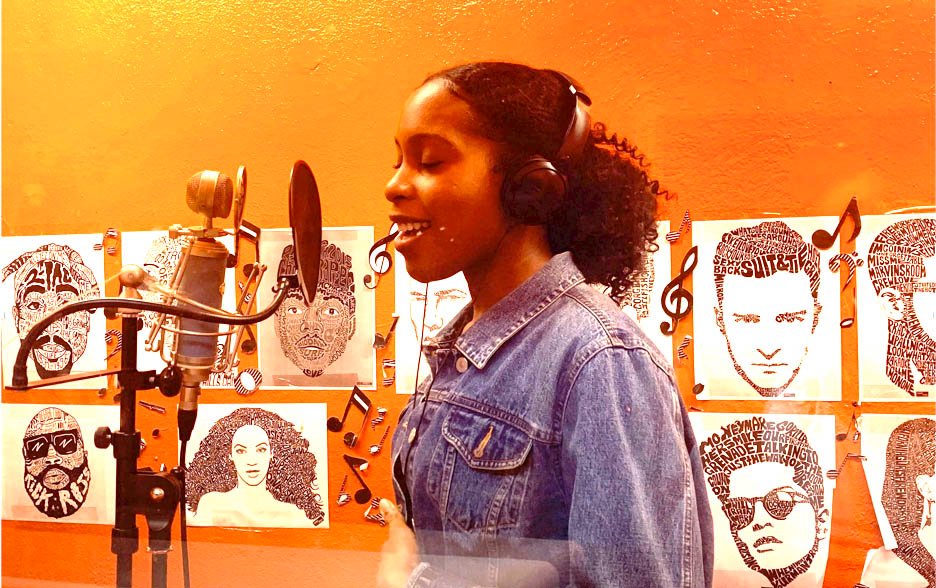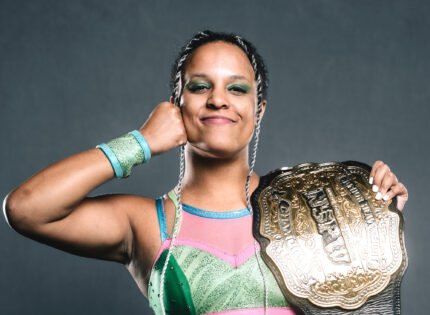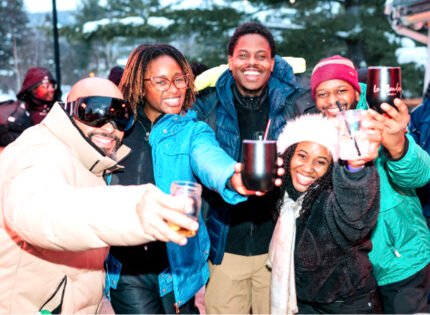BCRC’s Living History Project:
Submitted by the Living History Team
When we understand our history, we understand our place in the world. Our sense of self is reinforced through the stories we tell.
Our children grow up with an understanding of who they are, based on the stories of where they came from. Therefore, losing one’s history can be akin to losing one’s sense of place in the world… it would mean losing one’s identity and confidence.
Black immigrants have made significant cultural, artistic and social contributions to present-day Montreal. However, this history is often overlooked and rarely told. The BCRC’s Living History: 100 Years of Black History, Culture and Heritage is an oral history project highlighting some of the numerous contributions of Montreal’s English-speaking Black community.
Fifteen Black youth are creating memoryscapes or audio-tours of locations, events, organizations and people of significance to the ???? .
These memory-scapes will be made accessible through the BCRC’s website and will be archived for future research.
Meet Dana Issac
Dana Isaac is a second-year Psychology student at Concordia University. Hailing from Connecticut, USA, she was born to a Caribbean father and a mother with southern roots from Philadelphia. She is currently a research intern for the BCRC’s Living History: 100 Years of Black History, Culture and Heritage project, researching the Black Community Council of Quebec (BCCQ).
What made you choose to participate in the Living History: 100 Years of Black History, Culture and Heritage project?
DI: I am currently studying Psychology, a discipline whose methods require different forms of research to analyze data. Archival research, which is the primary research method used in this project, interested me because it involves looking at tangible information that also tells a story. Oral storytelling, a more conversational method, allows one to understand important historical events from a first-person perspective–once and individual is gone, their recollection of history leaves with them. If the stories of Black Montrealers are documented and preserved, it allows us to see an important, underrepresented part of Black history in this city.
As an English-speaking African American, I am knowledgeable about the history of Blacks in America, but know little about how it intersects or contrasts with the history of Black Anglophones in Quebec. I have learned that Black history in Quebec is not a topic that is covered in detail in the school system and many important details and events are brushed under the rug. I wanted to help uncover and document those details, which are not found in history books or online, and speak to the individuals who lived though these events in order to get their perspective during that time.
What topic did you choose for your
memoryscape? Why?
DI: I chose the BCCQ, or the Black Community Council of Quebec, formerly known as the BCCAQ, or the Black Community Central Administration of Quebec. I chose this topic because they were an organization that is heavily rooted in promoting the arts, cultural awareness, and promoted equality for Blacks in Montreal. This is significant because it was an official organization that advocated for equality and aimed to help improve the lives of immigrants who were being discriminated against by racist laws during that time period.

Why is youth involvement important when researching Black
history? How can our youth and elders work
together?
DI: Intergenerational storytelling is essential to the plight of Black youth; it is important to share these stories so the youth are aware of the tribulations their ancestors endured in order to provide us with the lives we have today, Recognizing this work allows us to appreciate how things have changed and give us direction as to what we want in the future.
Our youth and elders can start to work together at the place we know best–home. Documenting the stories of our parents and grandparents is essential to understanding the different events that transpired for us to be afforded many of the rights we have today.
Has Black history always been an important part of your life?
DI: Coming from an American and Caribbean background has allowed me to hear two sides of history, from two different locations, that allow me to piece together. Whether it was learning about segregation in the south from my southern grandparents, or growing up in Antigua from my father, I am always aware of where I come from.
Growing up, Black history in America was simply another unit to learn in social studies class. Three weeks to go over the history of slavery, segregation and the Civil War was deemed an adequate time frame for me to fully understand and grasp the depth of a tragic time period that, compared to all historical events, only fairly recently ended. However, how these events affect Blacks today is never talked about.
What are your plans for the future?
DI: In the future, I hope to be a psychologist/psychiatrist who specializes in helping Black individuals who can’t afford therapy or are more hesitant to receive therapy. With better access to health services, I hope to improve the quality of life of Blacks everywhere… I understand that Blacks are not a monolith; however, by learning the stories of Blacks from all walks of life, I hope to better understand how they are all related, or how individual cases can be treated themselves. It is important to learn what events occured in the past in order to heal in the present and become more resilient in the future.
Are you interested in participating in Living History: 100 Years of Black History, Culture and Heritage? Please contact Nadia or Margaret at (514) 342- 2247 ext. 106 or livinghistory@bcrcmontreal.com
Photo captions
Living History research interns after an Introduction to Oral History Workshop led by Dr. Stephané Martelly of Concordia University’s Centre for Oral History and Digital Storytelling
Dana Isaac gets familiar with recording equipment at Little Burgundy’s Youth in Motion.












